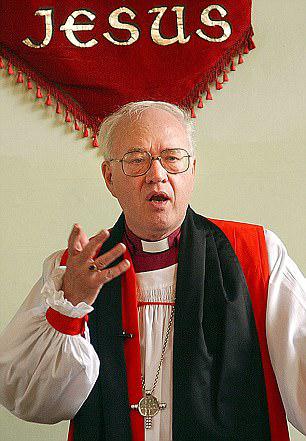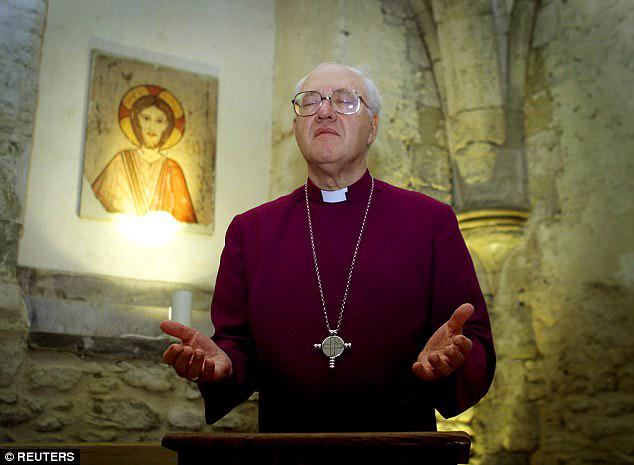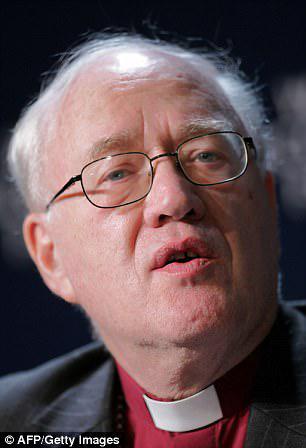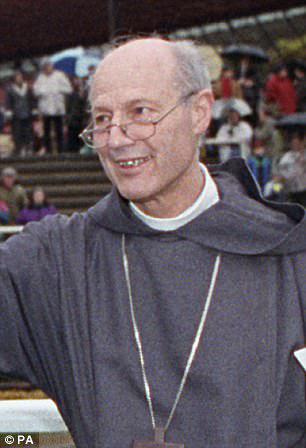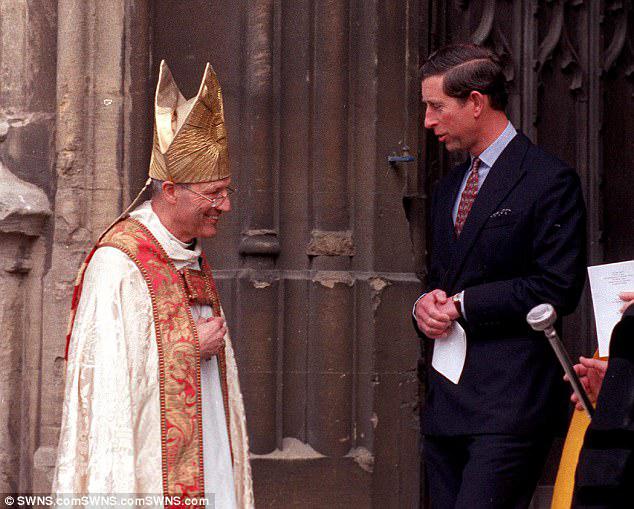|
Charles's friend the paedophile priest and a cover-up that shames the Church
By Tom Kelly
Former Archbishop of Canterbury George Carey colluded with senior clergy to protect a paedophile bishop, a damning report revealed yesterday. As a result, serial sex offender Peter Ball – who boasted of being a confidant of Prince Charles – escaped prosecution for more than 20 years. An independent inquiry into the scandal found that the Church of England knew of a string of allegations against Ball, then bishop of Gloucester, but failed to alert the police. Current Archbishop of Canterbury Justin Welby urged Lord Carey to step down from his role as an assistant bishop after the report covering his time as head of the Church of England. Some of Ball's victims called for a criminal investigation into senior clergy after the report found that the Church was 'more interested in protecting itself' than helping those he had abused, and that at least nine bishops knew allegations had been made against him. Ball, a former suffragan bishop of Lewes, was let off with caution for molesting a teenage novice monk in 1993. Although the Church knew of other allegations against him, it was not until 2015 that Ball was finally prosecuted and jailed. He admitted abusing 18 teenagers and young men who had sought spiritual guidance from him between 1977 and 1992. Ball was jailed for 32 months, serving half his sentence. The report into the scandal by Dame Moira Gibb, titled Abuse of Faith, described the Church's handling of the scandal as 'lamentable'. It revealed that:
Archbishop Welby said the report made harrowing reading. He said: 'The Church colluded and concealed rather than seeking to help those who were brave enough to come forward. 'This is inexcusable and shocking behaviour. To the survivors who were brave enough to share their story and bring Peter Ball to justice, I once again offer an unreserved apology. There are no excuses whatsoever for what took place and the systemic abuse of trust perpetrated by Peter Ball over decades.' The Archbishop has written to Lord Carey asking him to 'review his position' as an honorary assistant bishop in the Oxford diocese. The Bishop of Oxford, the Rt Rev Dr Steven Croft, confirmed last night that Lord Carey had 'voluntarily agreed to step back from public ministry' ahead of a meeting to discuss the report. Ball was first arrested on December 12, 1992, over allegations that he had molested trainee monk Neil Todd. As news of the investigation spread, Lambeth Palace received seven letters containing potentially disturbing information about him, including one from a man who described how, when he was 15, he had been asked by Ball to perform a sex act. In another, a man said Ball had asked to share a bedroom with his 17-year-old son. Lord Carey was briefed about the claims and replied personally to two of the letters. But only one, which was of least concern, was passed to the police. Ball escaped with a caution in 1993 for a single act of gross indecency against Mr Todd, who continued to be haunted by his experiences and took his own life in 2012. The inquiry report said: 'The Church's management of those seven letters, containing allegations against Ball, is perhaps its greatest failure in these events. 'The letters came from a range of families and individuals quite independently of each other. They raised concerns which were all either indirectly or precisely suggestive of sexual impropriety, or worse, by Ball. The failure to pass six of the letters to police … must give rise to a perception of deliberate concealment.' The report added that 'some of the most senior clergymen in the country' were dealing with the issue, including nine bishops and an archbishop, even before the caution. 'Yet serious concerns about an abuse of power and privilege were not adequately investigated, and matters which might constitute allegations of a crime were not passed to police.' After accepting the caution, Ball agreed to quit the Church. But Lord Carey played a key role in allowing him to return, describing him as a 'basically innocent' man for whom he had a 'very high' regard and inviting him to stay at Lambeth Palace. He invited him back twice more, paid for a brief holiday and handed him £12,500 in cash – although Ball was still 'bitter' not to have got the full £20,000 he had requested, the report says. Others in the Establishment also rallied to support Ball, including former Archbishop of Canterbury Lord Coggan, two MPs, two public school headmasters and Lord Lloyd, then a Lord Justice of Appeal. Ball went on to live in a 'specially acquired' rented cottage on the Prince of Wales's Duchy of Cornwall estate. Just three years after his caution, Lord Carey agreed that Ball should be permitted to preach at a public schools and conduct confirmations. And the following year, he told bishops they could allow Ball to carry out some religious services – but asked them to inform Lambeth Palace when he did because of concerns of 'possible press interest'. Dame Moira said: 'Ball's priority was to protect and promote himself and he maligned the abused. 'The Church colluded with that rather than seeking to help those he had harmed, or assuring itself of the safety of others.' Lord Williams, who was Archbishop of Canterbury between 2002 and 2012, is also criticised in the report. He was 'lamentably slow' at investigating Ball, having known for many years that there were concerns. He was warned about Ball in 1993 during the investigation into his abuse of Mr Todd. Subsequently he twice learned that the disgraced former bishop had accepted an invitation to preach or carry out confirmations in schools without seeking permission, but took no action. After belatedly completing a review into Ball prompted by media allegations, he sat on it for five months. The report concludes: 'Lord Williams inherited a confused situation regarding Peter Ball but he and his staff missed the opportunity to review and clarify it. He did oversee real change but at a pace which now seems lamentably slow.' Last night Graham Sawyer, a survivor of Ball's abuse, said: 'The Church continues to use highly aggressive legal firms to bully, frighten and discredit victims.' Richard Scorer, a specialist abuse lawyer at Slater and Gordon, who represents a number of Ball's victims, added: 'It's clear that senior figures concealed very serious allegations against Ball – the institution colluded with an abuser. 'Evidence that Lord Carey turned a blind eye to reports of Ball's offending is damning, but the report highlights that failure to safeguard vulnerable boys and young men continued under Carey's successor Rowan Williams. This appalling abdication of responsibility, from the most senior figures in the Church, is unforgivable.' Lord Carey said in a statement that and he accepted the report's criticisms. 'I apologise to the victims of Peter Ball,' he said. 'I believed Peter Ball's protestations and gave too little credence to the vulnerable young men and boys behind those allegations.' He said he regretted not putting Ball's name on the Lambeth List – names of people whose suitability for ministry is under question – after the 1993 caution.
|
||||||||||||
.
Any original material on these pages is copyright © BishopAccountability.org 2004. Reproduce freely with attribution.
